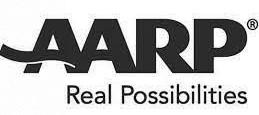AARP Tax-Aide program
W
hile AARP is offering free income tax preparation for older and low-income taxpayers again in 2021, the program will be done differently this year due to COVID-19. The Tax-Aide program will be provided with no or little in-person contact. Taxpayers need to leave a message at one of these telephone numbers: 402-577-0367 402-590-8140 402-913-0525 402-885-9951 AARP volunteers will return the calls to explain the virtual tax preparation process which began March 1.
Secure folders of scanned documents will allow clients to get assistance with their returns through email and phone contacts with certified volunteer tax preparers many of whom will work remotely. The volunteers will provide instructions to the taxpayers on how to scan and upload their tax documents. There will be limited opportunities for taxpayers without email access to make an appointment for AARP Tax Aide volunteers to scan and upload the tax documents for them. Go to taxaide.aarpfoundation.org/request-help to learn more about how taxpayers may be able to prepare their own tax documents. It’s essential for taxpayers to complete the AARP Tax Aide Intake and Interview forms prior to their appointment. There will also be a new form authorizing electronic return preparation. The virtual tax preparation process may involve multiple telephone conversations with the volunteers. If COVID-19 allows, four Tax-Aide sites with low contact between taxpayers and volunteers may open in Omaha.
A Caring Community Called HOME! Independent & Assisted Living
• No Entrance Fee • Medicaid Waiver Approved • All Utilities & Housekeeping Included • Spacious 1 & 2 Bedroom Apartments
49th & Q Street • 402-731-2118 www.southviewheightsomaha.com
Page 6
•
New Horizons
•
COVID-19 Disaster Relief Hotline offers legal advice during pandemic
N
ebraskans who have questions or who are experiencing legal problems due to the coronavirus/ COVID-19 public health emergency can get legal advice and help through the free COVID-19 Disaster Relief Hotline. Hosted by Legal Aid of Nebraska, working closely with the Nebraska State Bar Association’s Volunteer Lawyers Project (VLP), this hotline aims to make key legal assistance easy and accessible. If you’re a Nebraskan facing legal issues related to the virus, or the owner of a small, locally-owned business (less than 50 employees, and not a franchise) that’s closed, in risk of permanent closure due to the virus, and where the payment of fees would significantly deplete your resources, the hotline may be reached at 1-844-268-5627. Callers will be connected to the hotline’s voicemail. Callers should leave their name, phone number, brief details of the problem and the assistance needed, and in what county they’re located. Callers will receive a call back from an experienced Legal Aid staff member. Individuals and businesses that don’t qualify for Legal Aid’s free services will be directly referred to the VLP. The VLP will work to place cases with Nebraska volunteer law-
yers who will provide free legal assistance. The types of legal issues associated with COVID-19, and focused on by the hotline include: • Tenants with rent issues, including those facing eviction. • Debt problems, including debtors with garnishments or who are ordered to appear at a debtor’s exam. • Mortgage foreclosures, including advising on options for delinquent payments. • Unemployment insurance denials. • Employee rights, including sick leave and wage payments. • Government benefits available to low-income persons such as ADC, SNAP, AABD, and SSI. • Medicaid and medical insurance claims. • Drafting wills, health care powers of attorney, and transfer on death deeds. • Domestic abuse and safety issues. • Elder abuse and exploitation. • Access to education. • Helping small, locally-owned businesses with business and employment related matters including human relations issues, unemployment benefits, and contracts. More information on these legal issues, including ways you can directly help yourself are available at legalaidofnebraska.org.
Helping your plants battle insects By Melinda Myers
A
sticky substance on plant leaves, plant stands, and the floor are often the first clue alerting gardeners to a problem. If a closer look reveals bumps on the upper and lower surface of leaves and stems, it means scale insects have moved in to dine on your houseplants. Severe infestations can cause leaf yellowing, stunting, and dieback of the plant. If you have battled these insects, you know they can be challenging to control. Arm yourself with an understanding of their lifecycle and be persistent to successfully manage these pests. Scale insects have needlelike mouthparts that allow them to pierce the leaf and stem surfaces. They suck plant sap through a tube-like structure just as if they were drinking from a straw. These are one of several insects that secrete drops of a clear, sticky substance called honeydew, as they feed. A black fungus known as sooty mold may grow on the honeydew. It doesn’t directly harm the plant, but it looks bad. In severe cases, sooty mold can prevent sunlight from reaching the leaves causing them to yellow. Adult scale insects form coverings that protect them from adverse environmental
March 2021
conditions and most chemical controls. Eggs hatch under this protective covering and the immature scale, called crawlers, emerge looking for a place to feed. Once settled, the crawler continues to grow, shedding layers of skin. These layers of shed skin or waxy layers, form their protective covering. Isolate infected plants as soon as you discover the problem. This will reduce the risk of this pest spreading to your other plants.
Insecticides and washing small plants with a plant-safe soapy water solution can help manage small populations. You can remove the adult scales with a toothpick, tweezers, or an old toothbrush. Repeat every few weeks until you have this pest under control. This may be sufficient to control small populations but if you miss even one adult, the problem persists. The crawler stage is the most susceptible to chemical control. You’ll need a hand lens or magnifying glass to see these short-lived crawlers. Insecticides and washing small plants with a plant-safe soapy water solution can help manage small populations. Cover the pot and soil to prevent any scale knocked off during the bath from crawling back onto the plant. Increase your chance of success with the help of an organic insecticide like Summit Year-Round Spray Oil (SummitResponsibleSolutions.com). This lightweight oil suffocates and controls all stages of the scale insect including the adult and eggs housed under the protective covering. Repeat applications are needed to get this insect under control. This product is safe for people and pets while harmful to houseplant pests. As always read and follow label directions for the most effective results. Clean the pot, saucers, plant stands, and the area around infected plants to remove any honeydew and unseen crawlers. This along with proper control will reduce the risk of these insects infesting treated and nearby plants. Continue to monitor all your plants for scale and other insects each time you water. It’s much easier to manage small populations than larger infestations on more plants. (Myers has written more than 20 gardening books.)




